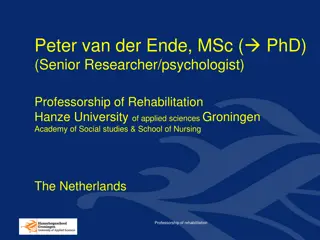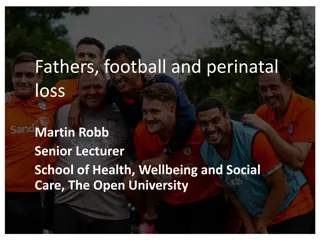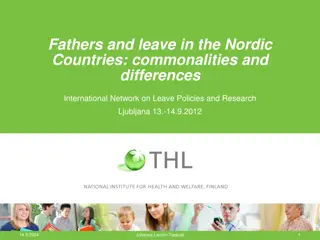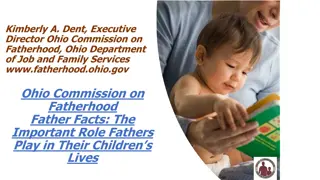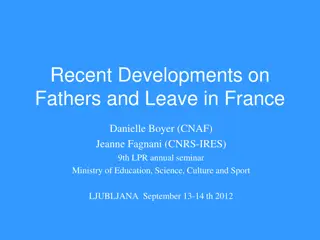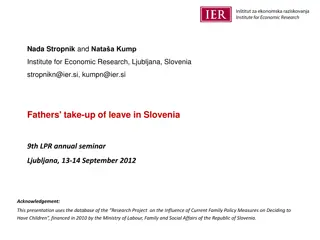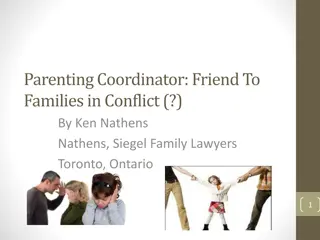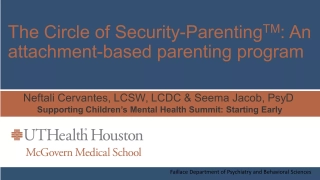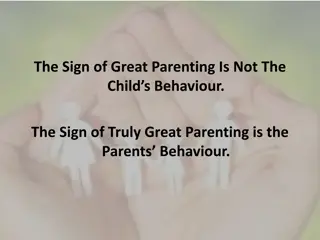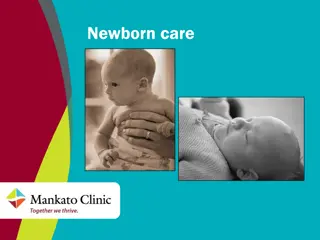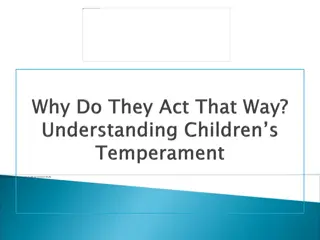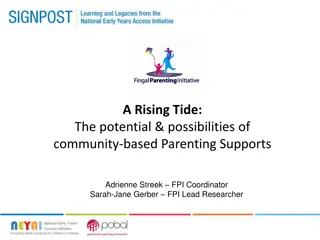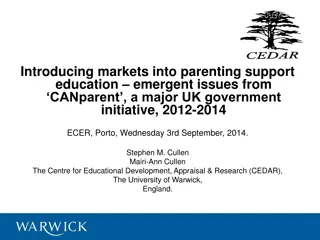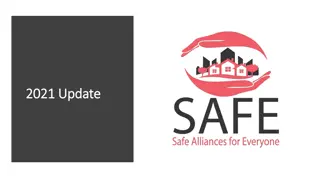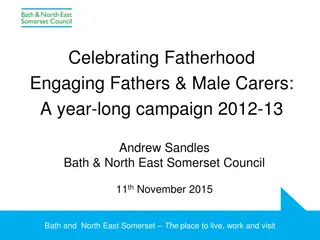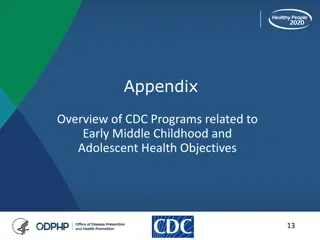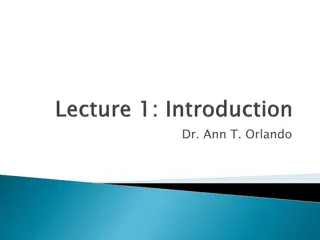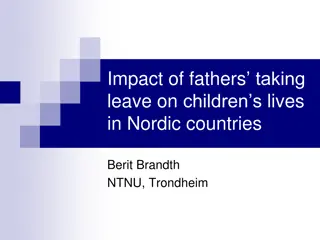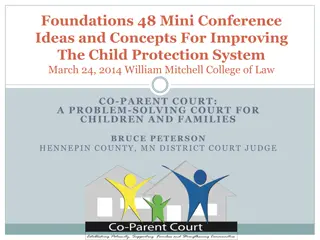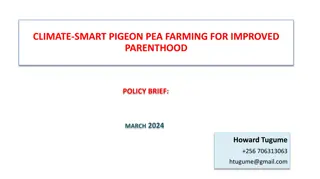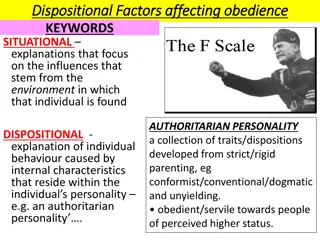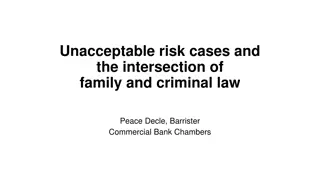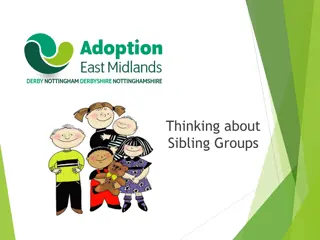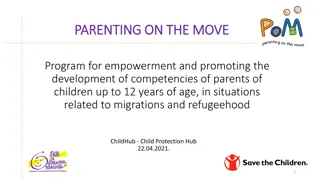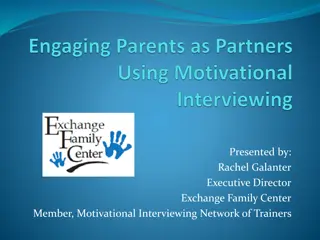Evaluating the Role of Fathers in Parenting Initiatives
The CEDAR Parenting Conference in November 2017 explored the involvement of fathers in parenting initiatives, focusing on three major government initiatives evaluated by CEDAR from 2006 to 2014. Despite the significance of including fathers, evaluations revealed their notable absence in these programs, highlighting barriers to engaging and retaining fathers. Key issues included professionals lacking support or guidance regarding fathers, societal attitudes favoring mothers as primary caregivers, and fathers feeling excluded from family activities due to various reasons. The session discussed strategies to overcome these challenges and foster greater father involvement in parent support and parenting projects.
Download Presentation

Please find below an Image/Link to download the presentation.
The content on the website is provided AS IS for your information and personal use only. It may not be sold, licensed, or shared on other websites without obtaining consent from the author. Download presentation by click this link. If you encounter any issues during the download, it is possible that the publisher has removed the file from their server.
E N D
Presentation Transcript
CEDAR Parenting Conference, 7 Nov 2017. Researching the role of fathers in parenting & parenting initiatives. Dr Stephen M. Cullen, CEDAR, University of Warwick.
This session. An overview of three parent support and parenting initiatives evaluated by CEDAR, 2006-2014. A review of issues arising in those initiatives relating to the role of fathers. An outline of approaches to including fathers in parent support, parenting projects and programmes, drawing upon CEDAR findings and the literature on the topic.
Parent support, Parenting & CEDAR CEDAR has evaluated three major government initiatives in the field over the last decade: Parent Support Advisers (PSA), 2006-2008. Parenting Early Intervention Pathfinder & the Parenting Early Intervention Programme (PEIP I & II), 2006-2011. The CANparent trial (CANp), 2012-2014. Each of these was a central government initiative, large- scale, and/or high profile. PSA and PEIP were funded initiatives operating through LAs and schools, while CANp was a pump-primed one involving a range of providers.
PSA, PEIP I & II, CANparent PSA: 20 LAs in England, 40million central government grant. A new role targeted at preventative & early intervention support to families, especially when there was concern re attendance &/or behaviour. In fact, it became a much wider role in practice. PEIP: three waves, fully funded, eventually all English LAs. Evidence- based parenting programmes, e.g. Triple P, SFSC, Incredible Years. Focus on children at risk of anti-social behaviour, but, in practice, much wider as LAs had freedom of implementation. CANparent: high profile, pump-priming attempt to create a quasi- market in universal parenting programme provision.
Fathers and the three initiatives. The evaluations showed that in the three initiatives, fathers were notable by their absence: PSA: evaluation data base of 20,000 case work details across 18 of 20 LAs, only 14% of PSAs work was with fathers. PEIP I: Only 12% of participants were fathers. PEIP II: of a total of 1,817 participants, only 161 were fathers (8.9%). CANparent: only 9% of participants were fathers.
The issues. Barriers to recruiting, engaging and retaining fathers in the parenting initiatives included: Professionals not given support or advice re fathers. Fathers absent from family life. Fathers put off from groups, events, by dominance of women/mothers. Fathers working hours. Staff in schools, children s centres, LA teams, overwhelmingly female. Societal or community attitudes that children were the responsibility of mothers. /
.issues. Some mothers (and some professionals) not wanting fathers to be involved. Significant men in some families not being a positive figure (e.g., domestic violence). Single parent families headed by mothers [90% one parent households headed by a woman]. Fathers mind-sets dominated by work. Cultural traditions that assign children s issues exclusively to mothers. Need for babysitter/child-care provision if both parents attend a course.
The wider picture The literature on fathers & fatherhood in relation to recruiting, engaging and retaining fathers suggests that, in Anglophone countries, the issues are very similar [see bibliography here for examples]. In the literature, comparatively little space is devoted to practical, hands on advice in relation to including fathers more effectively.
Including fathers In relation to: Recruiting Engaging Retention CEDAR s evaluations, and the literature suggests a range of strategies for including fathers
Recruiting, engaging Addressing all promotional material to fathers and mothers, not just parents . Home visits at times when fathers are more likely to be available. Recruiting and deploying male workers (although this can be double-edged). Building relationships with fathers as well as mothers. Talking to mothers about including fathers. Enquiring about non-resident fathers. Extending invitations to each father. Think about settings and events that may be attractive to fathers and their children Dads and kids events. Positive images of fathers in promotional material.
Retaining Recruiting fathers does not necessarily mean that fathers will be retained throughout a project. Strategies for retention include: Ensuring the setting environment is accessible to fathers. Activities in neutral settings. Being flexible in relation to fathers work patterns. Recognise additional issues, e.g., of fathers separated from children s mother. Sending individual text alerts and reminders of events. Get the word out early of events and remind fathers often. Services need to persevere in this work it isn t easy.
Workforce priorities Workforce priorities in relation to leadership, attitudes and training: Strong leadership to ensure staff understand about engaging effectively with fathers. Emphasis from senior management down on the importance of addressing father-child relations. Auditing staff knowledge & skills around fathers. Facilitating cultural change in workforces to enable the routine incorporation of fathers into family and parenting initiatives.
Summary Three parenting initiatives, PSA, PEIP & CANparent, over nearly a decade. All marked by low participation of fathers (from c.9-14%) These findings matched in other Anglophone countries. There are strategies and approaches to recruit, engage and retain fathers in parenting and family initiatives .But it s not easy. E.M. Forster: Only connect
Bibliography Action for Children (2009), Action for Children s approach to working with fathers and male carers in our early years services (Action for Children) Berlyn, C., Wise, S., and Soriano, G. (2008a), Engaging fathers in child and family services: Participation, perceptions and good practice. Strong Families and Communities Strategy 2004-2009 (Canberra, Australian Government: department of Families, Housing, Community Services and Indigenous Affairs) Berlyn, C., Wise, S., and Soriano, G. (2008b) Engaging fathers in child and family services , Family Matters, 80, 37- 42 Burgess, A. (no date), Engaging fathers in parenting interventions: the evidence base (PowerPoint presentation, Fatherhood Institute) Burgess, A. (2009), Fathers and Parenting Interventions: What Works? (Abergavenny, Fatherhood Institute) Campaign for Learning (2010), Engaging Dads , http://www.campaign-for- learning.org.uk/cfl/flw/resources/engaging_dads.asp accessed 5th June 2013 Children in Scotland (2010), Breaking-down stereotypes and engaging fathers in services for children and families (Edinburgh, Children in Scotland) Cullen, S.M., Cullen, M.A., Band, S., Davis, L., Lindsay, G. (2011), Supporting fathers to engage with their children s learning and education: an under-developed aspect of the Parent Support Adviser pilot , British Educational Research Journal, 37 (3), 485-500 Department for Education and Skills (2004), Engaging fathers: involving parents, raising achievement (No place of publication, DfES) Department of Health and Human Services USA (2009), NRFC Tips for Fatherhood Professionals; Engaging Fathers in Head Start (Gaithersburg, MD, National Responsible Fatherhood Clearinghouse)
Bibliography Fatherhood Institute (no date 1), Toolkit for developing father-inclusive services (Abergavenny, Fatherhood Institute) Fatherhood Institute (no date 2), PIP: Parenting Implementation Project; Guide to developing a father-inclusive workforce (Abergavenny, Fatherhood Institute) Fletcher, R. (1997), Getting DADS involved in schools (Newcastle, Australia, University of Newcastle) Fletcher, R. (2008), Father-inclusive practice and associated professional competencies (Melbourne, Australian Institute of Family Studies Forrest, S. (no date), Engaging with Fathers in Family Support Services; a summary of the learning acquired through Barnardos Da Project (Dublin, Barnardos) Goldman, R. (2005), Fathers Involvement in their Children s Education: a review of research and practice (London, National Family & Parenting Institute) Government of South Australia (2011?), Engaging Fathers; A report of the Fatherhood Engagement Research Project 2009-2010 (Government of South Australia) Kent County Council (2008), Engaging fathers; developing support services with and for fathers (Maidstone, Social Innovation Lab for Kent) Lloyd, T. (2001), What Works with Fathers? (London, Working With Men) Sanders, A., Oates, R., & Kahn, T. (no date), Hard to Reach? Engaging fathers in early years settings (University of Derby and the Preschool Learning Alliance, Derby
Bibliography Maxwell, N., Scourfield, J., Featherstone, B., Holland, S., & Tolman, R. (2012), Engaging fathers in child welfare services: a narrative review of recent research evidence , Child and Family Social Work, 17, pp.160-169 Minnesota Department of Human Services (no date), Working with Fathers: A Program Improvement Resource (no place of publication, Minnesota Department of Human Resources). National Assembly for Wales, Children and Young People Committee (2011), Follow up inquiry into parenting in Wales and the delivery of the Parenting Action Plan. (Cardiff, Children and Young People Committee, National Assembly for Wales). Pre-school Learning Alliance (2009), Where s Dad? A guide for early years practitioners on how to engage effectively with fathers (London, Pre-school Learning Alliance) Tehan, B., McDonald, M. (2010), Engaging fathers in child and family services , Community and Families Clearinghouse Australia (CAFCA) practice sheet, (Melbourne, Australian Institute of Family Studies)


